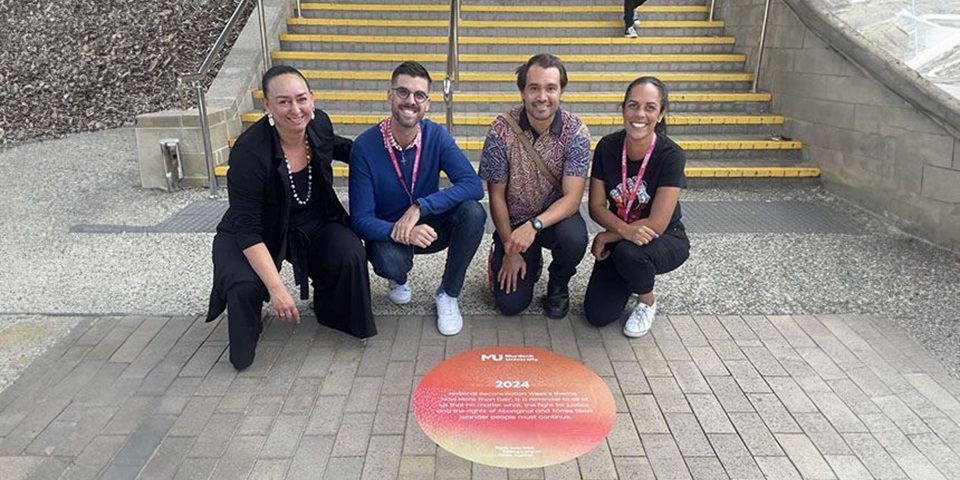News
Three steps we can all take towards reconciliation

Reconciliation is about strengthening relationships between Indigenous peoples and non-Indigenous peoples for the benefit of all Australians.
As a university, we recognise that education is a powerful tool for self-determination, societal change and reconciliation and that we have a unique responsibility to participate in the process.
“Universities play a significant role in progressing dialogue and action towards reconciliation through education, truth-telling and transparency,” Pro Vice Chancellor First Nations Associate Professor Chanelle van den Berg said.
As an educational institution, Murdoch University’s commitment to truth-telling is more important now than ever.”
Pro Vice Chancellor First Nations Associate Professor Chanelle van den Berg
Reconciliation is something we’re working towards every day and this National Reconciliation Week encourage everyone to join us in playing their part – because it's as much an individual responsibility as a collective one.
Here are three steps we can all take towards reconciliation.
Understand what reconciliation is about
At its heart, reconciliation is about the relationship between Aboriginal and Torres Strait Islander peoples and the broader Australian community.
Reconciliation Australia explains that in a reconciled Australia, Aboriginal and Torres Strait Islander children will have the same life chances and choices as non-Indigenous children, and the length and quality of a person’s life will not be determined by their racial background.
This is not currently the case, but provides a vivid marker to recognise when we get there.
Progress towards reconciliation is measured through five dimensions: race relations; equality and equity; institutional integrity; unity; and historical acceptance.
You can learn more about each aspect on the Reconciliation WA website.
Learn about significant events in reconciliation
The dates of National Reconciliation Week are significant, marking two major milestones in the reconciliation journey.
On 27 May 1967, Australians voted to change the Constitution so Aboriginal and Torres Strait Islander peoples would be recognised in the Census and the Government would be able to make associated laws.
There are many more significant events in the history of reconciliation – both progressive and damaging. To improve community awareness and understanding of these, a Reconciliation Walk has been installed at our Perth campus that features significant First Nations facts and milestones.
Acknowledge Traditional Owners
An Acknowledgment of Country is a statement that shows you recognise and respect the land that has for thousands of years been cared for by the Aboriginal communities who live there. It’s like saying ‘thank you for having me in your home’.
This simple but significant action is one of the biggest steps in reconciliation, as it calls for change and reflection by everyone present.
This week presents an ideal opportunity to develop a meaningful and personalised Acknowledgement of Country with guidance from Pro Vice Chancellor First Nations Associate Professor Chanelle van den Berg.News
Three steps we can all take towards reconciliation
Posted on